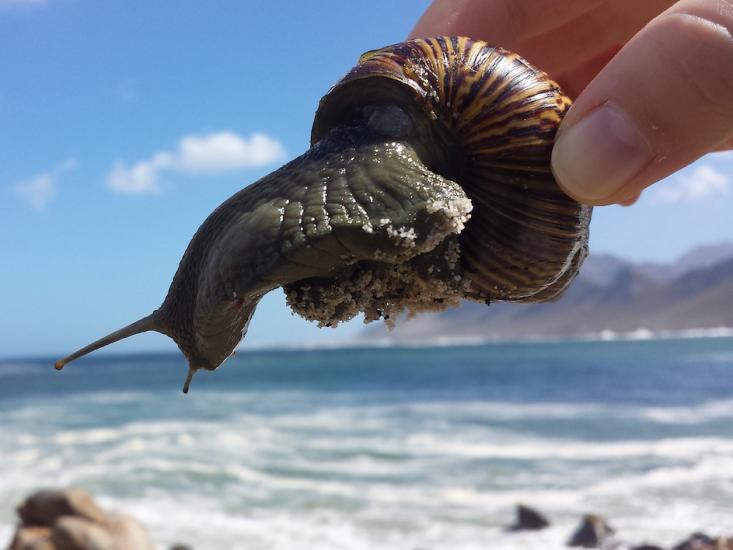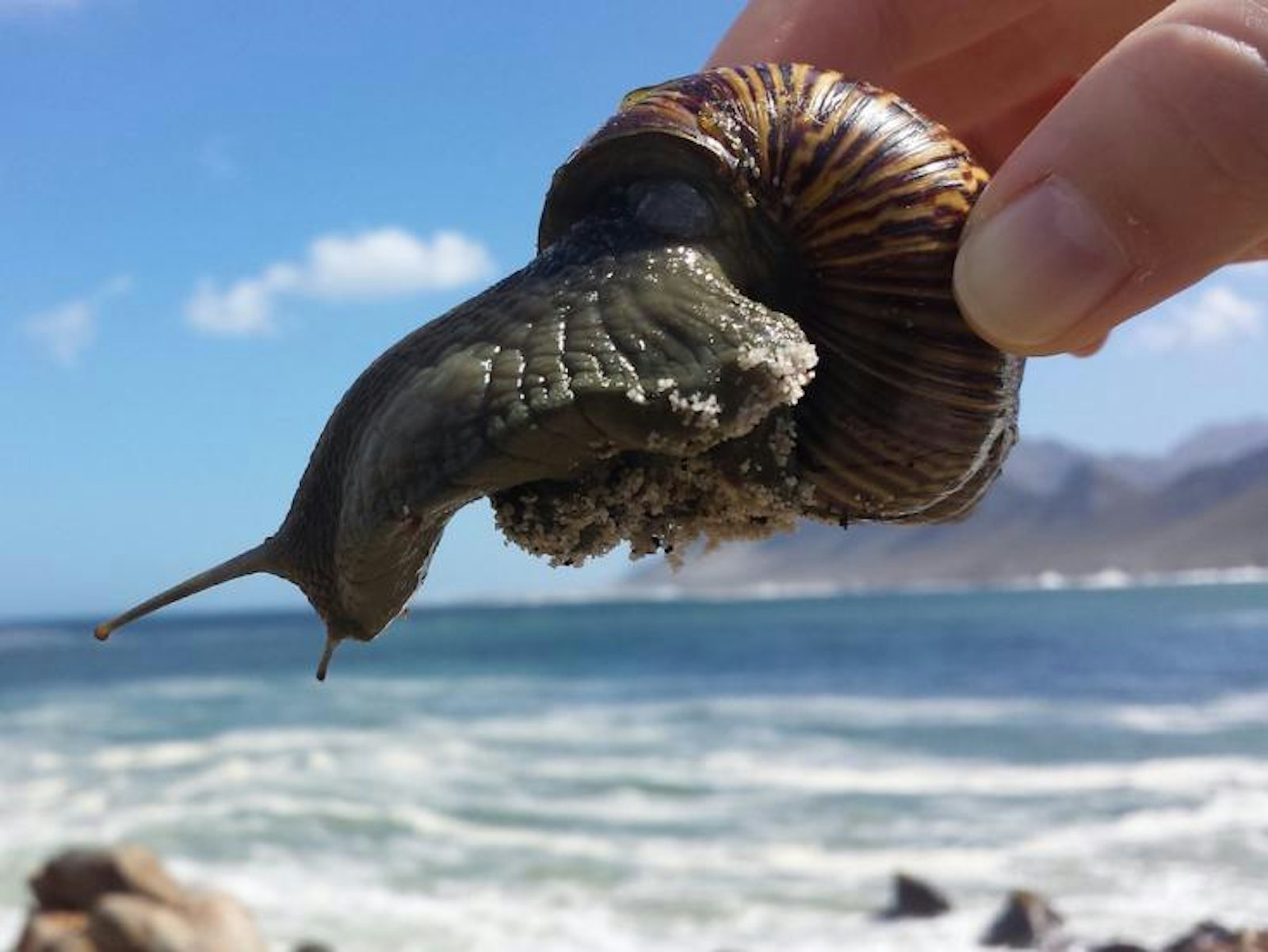As a child in Maine, I spent a lot of time exploring the tide pools jutting out from Rice Point, the beach where my extended family hosted noisy lobster picnics. Every so often I would unstick a periwinkle (Littorina littorea), a common kind of sea snail, from a rock, let it tumble into my palm, then sing into my cupped hand. The small, slimy creature inside would gradually emerge, swaying to my voice like a cobra to a snake charmer’s flute.

I didn’t discover this trick on my own. The belief that singing draws out periwinkles has its roots in urban (or perhaps nautical) myth. There’s even a musical rhyme aimed at getting them out, according to the Dictionary of Newfoundland English, “chanted by the boys and girls as they go to the sea-shore to pick the snagle [snail].”
Snagle, snagle come out of your hole,
If you don’t I’ll make your mother and father black as any crow.
What’s going on here? Why do periwinkles emerge to the sound of the human voice—if, indeed, they do? When this childhood mystery bobbed up in my memory a few weeks ago, I decided to solve it once and for all.
I posed my question to a handful of biologists, two of whom said it was unfortunate I hadn’t done a control study—that I hadn’t sat silently with a periwinkle for an extended period of time. (Um, I was six years old.) With a single prod, they deflated the singing theory, explaining that any invertebrate will respond automatically to foreign elements in its environment, like handling or temperature changes (invertebrates’ nervous systems contain the blueprint for our own stress response systems, the originators of the molecule signal systems which induce automatic physiological replies to alarming phenomena). Faced with an outside stressor, sea cucumbers will discharge their internal organs, which regrow; octopi will start to eat their arms, which occasionally don’t; and periwinkles will retreat to the safety of their shells (they may be shy, but at least they’re not masochistic). Once things feel relatively safe, they will come out again. A periwinkles’ “instinctive reaction is to extend its muscle foot and attempt to reattach itself,” said Kevin Eckelbarger, a biologist at the University of Maine. “Whether you sing or not, the periwinkle will use its foot to search for a substrate.”
So my voice may not draw periwinkles out. But why did they emerge from their shells at all? If periwinkles retract in the face of foreign elements, why didn’t my voice scare them into hiding?
Perhaps singing, the biologists explained, isn’t so foreign to periwinkles. Their nervous systems, which help them find food, move in relation to the ocean, and respond to immediate threats, may be misinterpreting my voice.
In Maine, could I have been tricking the snails into a sense normalcy, neutralizing their avoidance behavior, with a kind of siren song?
In 1995, Olaf Ellers, who studies the biomechanics of marine invertebrates at Bowdoin College, showed that surf clams (Donax variabilis), a mollusk and close relative of the periwinkle, can sense ocean tides, and jump from the sand to ride the swash. They respond most to low-frequency sounds, like waves rolling onto shore, and louder sounds; on a beach, clams jump preferentially for the largest—often the loudest—20 percent of waves. The rumbling noise of an approaching bore ranges from 40 to 300 Hz. Human voices fall within this range—men’s speech is typically between 85 Hz and 155 Hz, a woman’s between 165 Hz to 255 Hz, and a child’s between 250 Hz to 300 Hz.
While no one’s found that snails can hear as clams do, Jonathan Allen, a marine biologist at the College of William & Mary, says a recent study on cephalopods—another mollusk group that includes the octopus, the squid, and the cuttlefish, all close cousins of periwinkles—suggests that they can also “hear” like clams, by sensing the motion and volume of underwater particles with the otolith, the cephalopod’s supposed center of hearing and gravity detection. Study authors Yunfeng Zhang and Feng Shi, environmental engineers at the University of Maryland, note that, thanks to these mechanisms, octopi can hear impending landslides and the low rumbling of wind farms near shore. Their sensitive hearing could be, in part, due to climate change, the researchers note. The otolith expands by as much as 12.5 percent when immersed in a carbon-rich environment, and CO2 levels in the ocean are rising. In the last two centuries, the level of ocean acidity has increased by 25 percent.
Periwinkles have been affected by increased carbon, too. Normally, they produce thicker shells in response to predation—mostly from crabs—but this response was disrupted in Littorina littorea exposed to carbon-rich seawater, according to a study in Biology Letters. The snails compensated for this lack of defense, the study authors write, by “increasing their avoidance behavior.” In Maine, could I have been tricking the snails into a sense normalcy, neutralizing their avoidance behavior, with a kind of siren song? Allen called this theory “plausible.”
In any case, next time I’m in Maine, hanging around the tide pools, I’ll keep my mouth shut. That should keep the biologists happy. And, I suspect, the periwinkles too. If they can hear, they have quite enough human activity to listen to already.
Susie Neilson is an editorial intern at Nautilus. Follow her on Twitter @schmeilson.






























